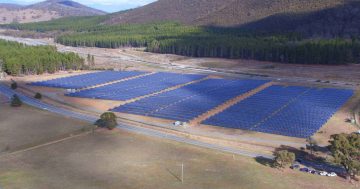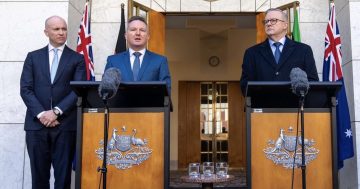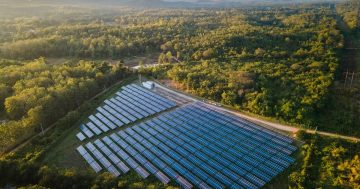
Legislation has been introduced to Federal Parliament to establish the Net Zero Economy Authority. Image: frentusha.
Australia’s net zero economy is one step closer, with the Federal Government using the last parliamentary sitting day before Easter to introduce legislation to place the nation on the path to becoming what it hopes will be a renewable energy superpower.
Labor says Australia must embrace the global shift to net zero emissions and become a leader in the field.
That’s easier said than done, but the government has delivered a bill to establish the Net Zero Economy Authority.
It says this will ensure Australian workers and regions realise and share in the benefits of the net zero economy.
It also announced a $189.3 million over four years commitment from 2023-24 to resource the new authority.
Ongoing yearly funding for the authority after those four years stands at $53.3 million.
In making the announcement, Anthony Albanese said once established, the authority will support an economy-wide net zero transformation that is already underway.
It will act as a catalyst for private and public investment, major project development, job creation and transition, and skills and community development.
“There is no nation on earth better placed than Australia to achieve the energy transition here at home and power it in the world,” the Prime Minister said.
“We are home to every metal and critical mineral essential to net zero. Our workforce is skilled and valued, our safety standards are the highest in the world and we have a proven track record as a reliable producer and exporter of energy and resources.
“The Net Zero Economy Authority will play an important role in one of the most significant economic events in Australian history and position us as a renewable energy superpower.
“We are committed to working across governments, with regional communities and industries, and our international partners, to secure the opportunities of Australia’s net zero future.”
Global efforts to reduce emissions have already started transforming traditional industries, creating new opportunities to broaden Australia’s industrial base and strengthen our sovereign capability.
The government’s policy agenda is on track to reduce emissions by 43 per cent on 2005 levels by 2030 and net zero by 2050.
Mr Albanese said the new authority would be pivotal to delivering on this goal.
The Net Zero Economy Authority will be an independent statutory body housed in the Prime Minister’s portfolio.
It will:
- Facilitate public and private sector participation and investment in emissions reduction and net zero transformation projects across Australia, including working with established investment funds
- Support workers in emissions-intensive industries to access new employment, or acquire skills to improve their employment prospects, including an Energy Industry Jobs Plan to help workers in closing coal-fired power stations transition to new jobs
- Support communities – including First Nations communities – to participate in, and benefit from, the economic shift to net zero emissions
- Share information about Australia’s transformation to net zero economy, educating communities and supporting social licence for the transition
- Promote coordination and consistency across government policies and programs.
Climate Change and Energy Minister Chris Bowen said the authority would help build on more than $40 billion in job-generating investments.
But the net zero target would take a huge effort across sectors to reach.
“Neither government funding nor private capital alone can meet this challenge,” Mr Bowen said.
“It will take both, working together, to secure the opportunities of Australia’s net zero future.
“Our local and regional communities are at the forefront of the economic shift. Through this new body, we can better support them to seize the opportunities of a net zero economy.
“We will work in genuine partnership with business, unions and communities to help make sure no-one is left behind as we seize on this once in a generation opportunity.”
The Federal Opposition, however, has already decided to oppose much of the government’s key policies aimed at achieving net zero by 2050.
The Coalition is against safeguard mechanisms Labor wants in place to more quickly force industrial emissions down.




















